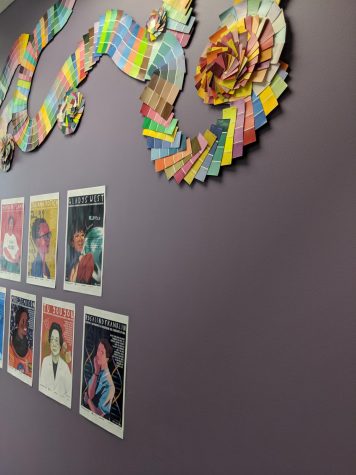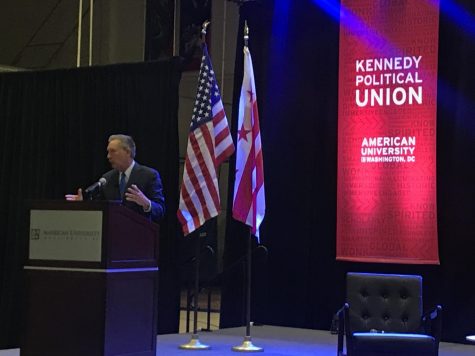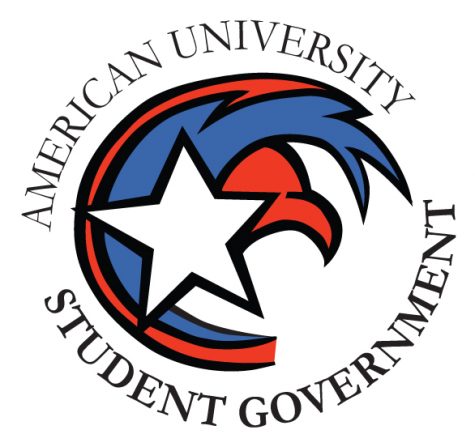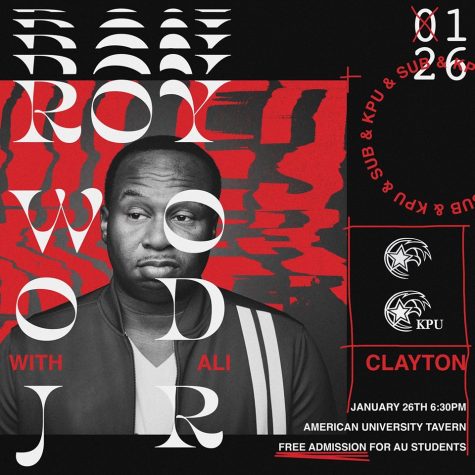Professor Profile: Simon Nicholson
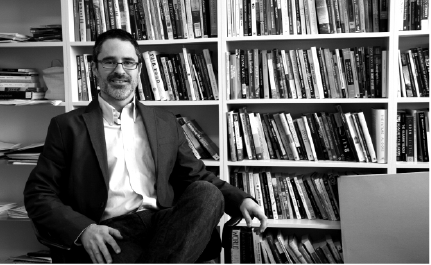
Simon Nicholson is professor who teaches in the School of International Service and specializes in global environmental politics. Before his academic home was in the Global Scholars office, he worked in the Galapagos with cross-curricular graduate programs, on a cruise ship headed around the world and at a law school in New Zealand. Professor Nicholson recently took time to talk about his Semester at Sea, Fossil Free AU’s divestment campaign, and why everyone needs to do more than just ride their bike to stop climate change.
What’s your favorite class to teach now?
I always have this little spiel at the start of [International Environmental Politics]: ‘I teach this course because I think its really intellectually interesting, there are lots of big and interesting issues to grapple with, but the main reason I teach it is because environmental concerns are about the most critical set of concerns that we face now, and we need to wrap our brains around them and we need to work out why we’re facing them and what can be done, and so that’s what we’re really trying to get through.’ It’s a course really focused on action.
Which of your areas of expertise is the most important to students and to the world?
I think there’s little question for those of us who look at environmental concerns, the big issue that we all need to come to terms with now is climate change. And what I want everybody to know about climate change is that the emerging science on climate change, the mainstream emerging science that’s coming out right now, tells us that the situation is far, far more desperate than most of us thought it would be just a handful of years ago. The climate system is changing more rapidly, and its proving to be less robust in the face of even small temperature changes than we’d anticipated and, very quickly, it looks like our ability to restrain the global economy from putting more and more carbon into the atmosphere is slipping away from us.
And that sounds just so doom and gloom, and I don’t consider myself kind of a gloomy person, but my read of the science as it stands at the moment is that we’re almost at the point of desperation with these issues.
That was just such a bummer. Can I delete that?
You’ve taught at the Semester at Sea program and with traveling programs at AU. What was is it like to work so closely with a small group of students and faculty? With all your academic work, that’s a lot of collaborating.
In the Semester at Sea program, I’d have class with students, we’d then go to lunch together, we’d get off the ship in India together, and then go back and process that experience in the classroom, and so it really just started to merge together. We’re trying to recreate some of that through the global scholars program, that’s what it means to have a really vibrant living learning community. So the conversations that get started in the classroom don’t finish as people walk out the door… To just be on that ship, with really smart people: students and faculty, [including Archbishop] Desmond Tutu who you could just kind of sit down with and say, “Oh, so what’s going on? What do you think of the world?”
You’re interested in human rights and climate change. How are they connected?
The thing about what climate change is going to mean for people in the United States, we’ll face more storms, we’ll have more droughts, and so forth. But because of our wealth as a country, we are unequally able to adapt to many of the changes that are on the horizon. But if you live in Bangladesh and your land’s being swallowed up by rising seawater, you’re being forced to migrate across borders into India, and so forth. The people who are already living the most desperate and fragile lives are affected worst by [the] change… But they’re not getting any of the benefits of burning carbon-based fuels. That’s fundamentally a justice question.
Instead of thinking about climate change in abstract terms, we’re putting this invisible gas out into the invisible atmosphere and it might have effects down the road, now we’re talking about it in very human terms, we’re talking about it in terms that I just mentioned. There are people suffering right now because of the effects of climate change. A climate change movement premised on human rights and justice gives us more impetus for action.
So if someone’s not going into policy, what can they do to help?
Here’s one important thing, a caveat. The mainstream environmental movement for a long time and our environmental leaders have been telling us that just by taking some very basic, some very simple steps—you’ve been hearing this your whole life—if you just recycle, ride a bike or take a bus rather than driving a car, if you just change out your light bulbs for compact fluorescent light bulbs, then you’re doing your part.
Because of our wealth as a country, we are unequally able to adapt to many of the changes that are on the horizon.
But if the situation is really as desperate as the science tells us, those sorts of small steps, even taken by a large number of individuals, they don’t add up to very much. They’re not commensurate with the challenge that we face. Individuals, as well as doing all of those sorts of things that we typically think of as living good, green lives, really have to start getting more politically active.
One of Kiho Kim’s classes a couple of years ago, they went into TDR… and they found out that a huge percentage of food that was going onto people’s trays and plates was being tossed away. And so they recommended that the trays be taken out… There wasn’t an individual level change, we didn’t ask lots of people to work out ways to waste less food. We got rid of the trays, and now people put less food on their plates, and so less food is thrown away. It was a dramatic change… driven by a handful of students getting together in Professor Kim’s class and identifying a structural point of intervention… As long as we think we can tackle the environmental challenge just by individual consumer-type actions… nothing is ever really fundamentally going to happen.
Political action doesn’t just mean writing to one’s congressman… it means getting together in groups and changing the way that we, collectively, live together.
Political action doesn’t just mean writing to one’s congressman or voting in elections, although those things are important too, it means getting together in groups and changing the way that we, collectively, live together.
Students in [International Environmental Politics] set up local community gardens, the community garden we have on campus came in part from students out of that course. Composting in the Davenport Lounge, the initial push for double-sided printing in the library, all of these things are really basic. But if you change the settings on the computers in the library so that it defaults to double-sided printing, people don’t have to make the right choice to print single-sided or double-sided.The choice is made for them, and nobody really complains.
And so what can everybody do, it’s a really long answer to a very simple question, what can folks do? Get serious. That’s what we need to do.
One other thing I want to call attention to is the work that Eco-Sense, the environmental club on campus, is doing this semester. They’re pushing for what’s called divestment. That’s a new campaign. It’s a nationwide campaign started by 350.org which is a well-known environmental organization, and they’ve picked it up. And so they’ve started a group called Fossil Free AU.
[Those students] want a freeze on new investments in fossil fuels, and in fossil-fuel companies. And then they want a real conversation to begin about how to pull all of our current endowment investments out of fossil fuel companies.
And if the University does take that step because of student pressure… and other campuses and municipalities and investment firms start to do the same sort of thing, that sends a powerful message to all companies. It won’t hurt their bottom line a lot, but it changes their moral equation. It starts to send a signal to oil companies that their business model has to change.



